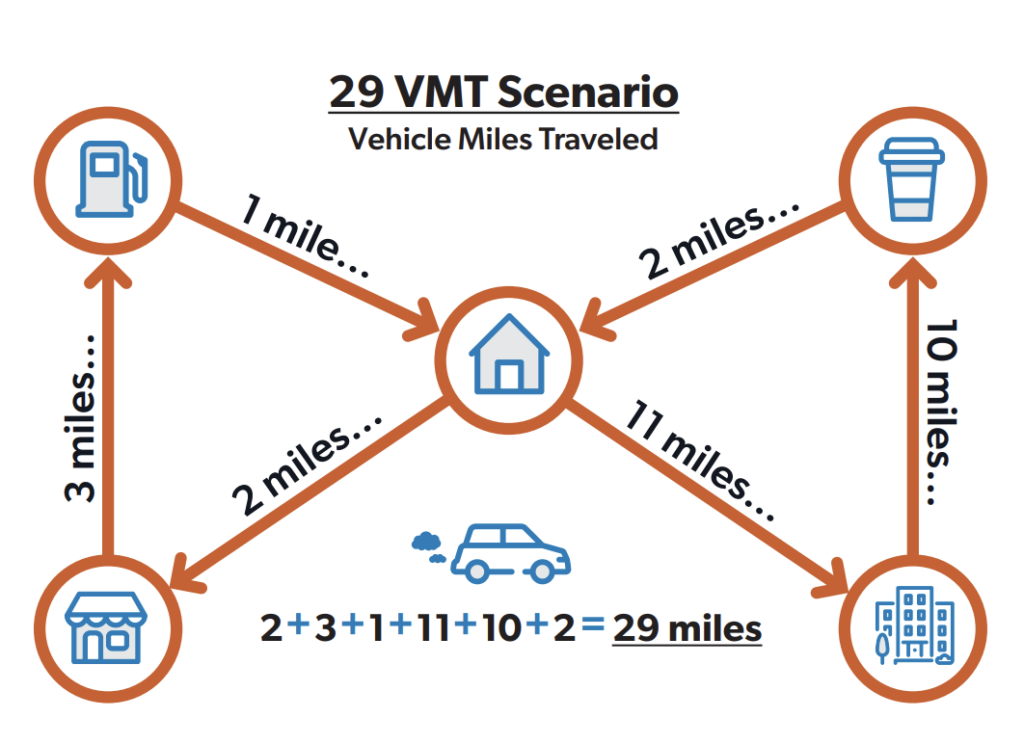VMT Mitigation Program Study
What is a Vehicle Miles Traveled (VMT) mitigation program?

CCTA VMT-Reduction Strategies
CCTA’s 2020 Transportation Expenditure Plan (TEP) identified and included a VMT mitigation program as part of a comprehensive strategy to increase use of active transportation modes, focus development at transportation-efficient locations, and reduce greenhouse gas emissions in Contra Costa County. A VMT mitigation program would also help CCTA and its member agencies with an important tool for implementing Senate Bill 743, which removed vehicle delay as a finding of significance under the California Environmental Quality Act (CEQA), and replaced the measure with VMT starting in July 2020.
CCTA applied for and was awarded a Caltrans Sustainable Communities Transportation Planning Grant in 2021 in order to study the development of a framework for a VMT Mitigation Program in Contra Costa County. CCTA retained Fehr & Peers to lead the Study, and a large stakeholder advisory group was formed to guide the Study. The goal of the Study was to test various Program options, including banks and exchanges, develop a cost for VMT in Contra Costa, and analyze strategies that could be funded, for their VMT-reduction effectiveness and feasibility. The Study was completed in February 2023, and a full report is available below.